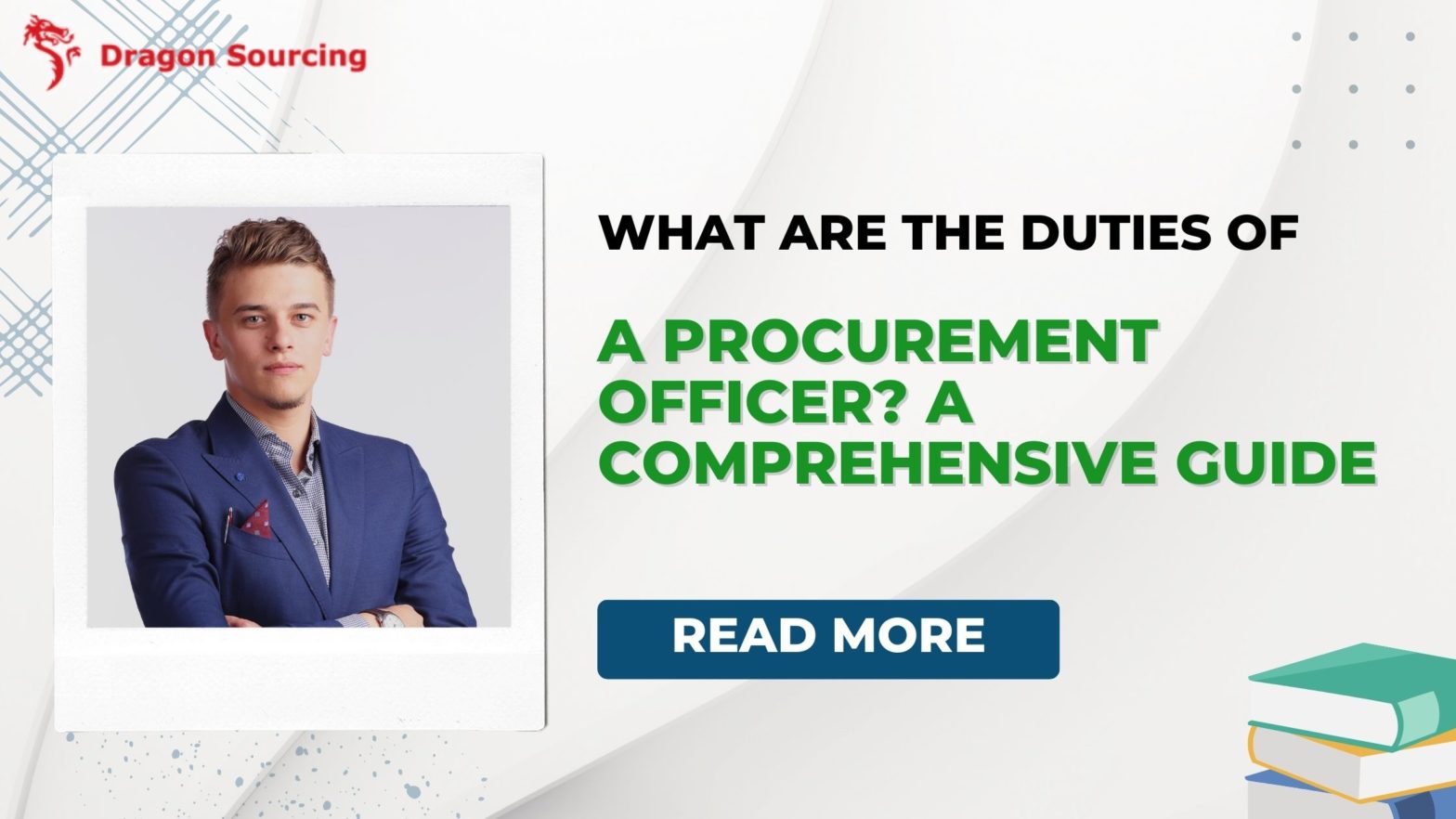
Summary: Key Duties of a Procurement Officer
Strategic Sourcing: Identify reliable suppliers and negotiate favorable terms.
Cost Control: Optimize budgets, track expenses, and seek cost-saving opportunities.
Risk Management: Mitigate supply chain risks and ensure compliance.
Inventory Coordination: Maintain stock levels and align deliveries with demand.
Market Analysis: Monitor trends and adapt sourcing strategies accordingly.
Documentation: Maintain accurate procurement records for transparency and audits.
Team Leadership: Manage procurement teams and align goals with business objectives.
In today’s globally interconnected marketplace, procurement has evolved from a simple purchasing function into a critical strategic role within organizations. The procurement officer is at the heart of this evolution. Far beyond just acquiring goods and services, these professionals are responsible for optimizing costs, ensuring supply chain continuity, mitigating risks, and supporting overall business strategy. In industries ranging from manufacturing to retail to public administration, procurement officers are essential for maintaining the delicate balance between demand and supply, cost efficiency, quality assurance, and supplier reliability.
This article explores in detail the wide-ranging duties and responsibilities of procurement officers and explains why their role is vital to the success and sustainability of modern organizations.
1. Strategic Sourcing and Supplier Management
At the core of a procurement officer’s responsibilities is the task of sourcing the best suppliers. This involves identifying vendors who not only meet quality and pricing benchmarks but are also reliable and aligned with the company’s ethical and operational standards.
Procurement officers must:
Conduct supplier evaluations and due diligence
Negotiate prices, payment terms, and delivery schedules
Establish and nurture long-term supplier relationships
Manage supplier performance through KPIs (Key Performance Indicators)
Effective supplier management minimizes supply disruptions, enhances product quality, and fosters innovation through collaborative vendor partnerships.
2. Cost Control and Budget Optimization
Controlling costs is a fundamental expectation from procurement professionals. A procurement officer is not just a spender—they are a guardian of the organization’s financial resources. Through meticulous budget planning, forecasting, and strategic purchasing, they contribute directly to the organization’s bottom line.
Their responsibilities include:
Preparing annual procurement budgets
Identifying cost-saving opportunities through bulk purchases or alternative sourcing
Monitoring market price trends to make informed buying decisions
Working closely with finance departments for budget alignment
Procurement officers also employ tools like Total Cost of Ownership (TCO) analysis to evaluate the long-term impact of procurement decisions.
3. Risk Assessment and Mitigation
Risk management is an often-underappreciated, yet crucial aspect of procurement. From supply chain interruptions to compliance issues, procurement officers must anticipate and proactively mitigate risks that could impact the business.
Key tasks involve:
Vetting suppliers for financial and legal stability
Ensuring compliance with international, national, and local laws and regulations
Creating contingency plans for critical supplies
Implementing contracts that protect the company against liability and penalties
Procurement officers may also play a role in sustainability and ethical sourcing, reducing reputational risk.
4. Inventory and Logistics Coordination
Procurement officers collaborate with inventory and logistics teams to ensure that materials are available when needed, without overstocking or wastage. This requires a deep understanding of demand patterns and logistical dynamics.
Responsibilities in this area include:
Maintaining optimal inventory levels
Scheduling deliveries based on production or project timelines
Avoiding stockouts or overstock scenarios
Working with logistics providers to ensure timely, cost-effective deliveries
An efficient procurement officer uses inventory management software and real-time tracking systems to make data-driven decisions.
5. Market Research and Strategic Planning
Procurement officers must stay ahead of industry and economic trends. Their ability to interpret market data can make the difference between securing a competitive edge and falling behind.
This involves:
Conducting supplier market analysis
Monitoring fluctuations in raw material prices
Assessing geopolitical or environmental factors impacting supply chains
Adjusting procurement strategies in anticipation of market changes
They also contribute to long-term planning by suggesting new sourcing locations, introducing automation, or supporting digital procurement initiatives.
6. Compliance, Documentation, and Record-Keeping
Procurement involves a massive amount of documentation—from purchase requisitions to supplier contracts. Maintaining accurate and transparent records is essential for auditing, legal compliance, and operational efficiency.
Procurement officers manage:
Purchase orders, invoices, and receipts
Supplier contracts and NDAs
Internal procurement reports
Regulatory documentation (e.g., for customs clearance or certifications)
Good record-keeping ensures procurement decisions can be reviewed, audited, and optimized.
7. Leadership and Team Management (Where Applicable)
In larger organizations or government departments, procurement officers may lead a team. In such roles, they are responsible for setting procurement policies, training team members, and ensuring alignment with broader organizational goals.
Tasks include:
Delegating responsibilities across procurement teams
Conducting performance appraisals
Coaching junior procurement staff
Driving continuous improvement initiatives
Strong leadership in procurement helps build resilient and responsive supply chains.
Conclusion
The role of a procurement officer is multifaceted and indispensable in the modern business landscape. These professionals act as strategic enablers—driving value, reducing risk, improving efficiency, and enabling innovation across the supply chain. Organizations that empower their procurement officers with the right tools, authority, and training can gain a significant competitive advantage in their respective markets.
Whether you are an aspiring procurement officer or a business leader seeking to strengthen your procurement function, understanding the depth and scope of this role is the first step toward excellence in supply chain management.
Resources and References
Dragon Sourcing. (n.d.). Duties of a Procurement Officer. Retrieved from: https://www.dragonsourcing.com/duties-of-a-procurement-officer/
Procurement Outsourcing US. (n.d.). Procurement Officer Job Description. Retrieved from: https://procurementoutsourcing.us/officer/
Gainfront. (n.d.). What is a Procurement Officer? Retrieved from: https://www.gainfront.com/blog/what-is-a-procurement-officer/


